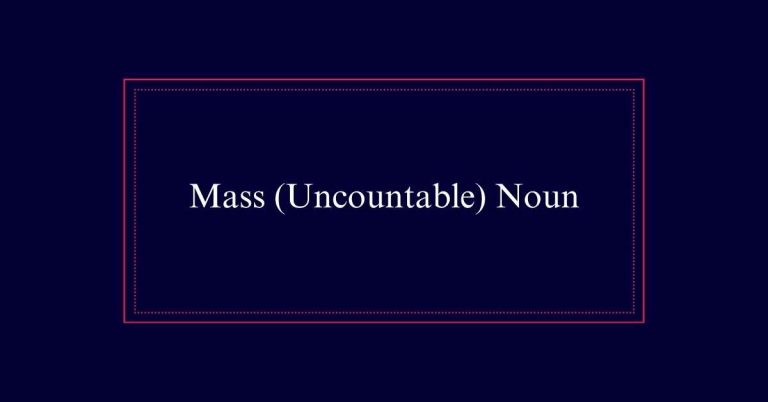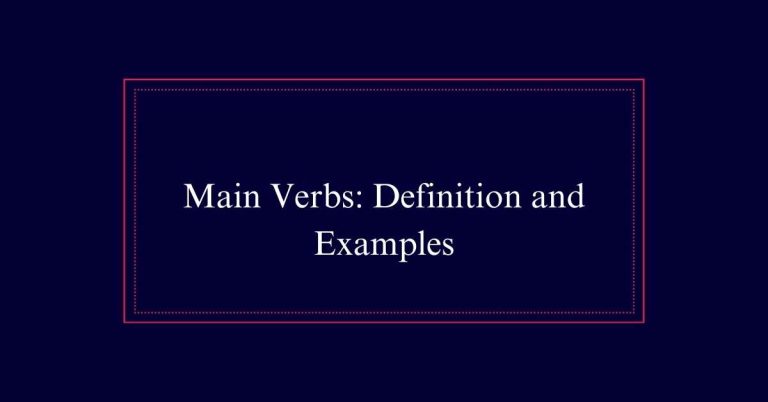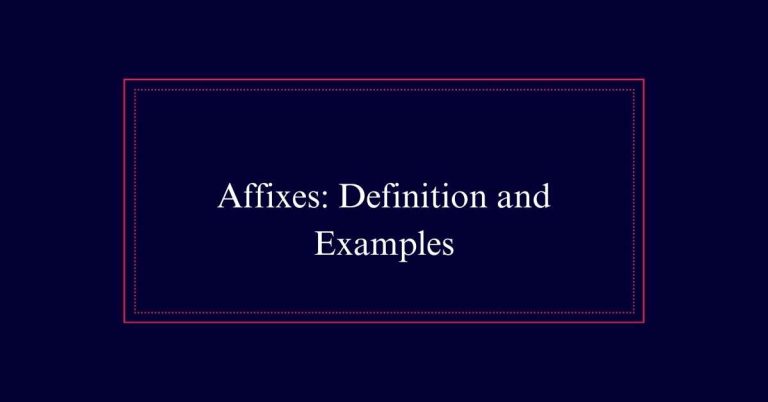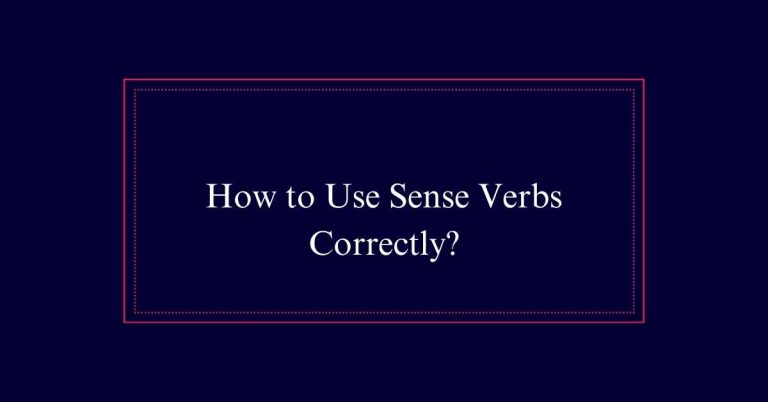What Is the Predicate Nominative in Grammar?
A predicate nominative is a noun or noun phrase that follows a linking verb and renames or describes the subject of a sentence. It serves as a subject complement, providing additional information about the subject without indicating action.
For example, in the sentence ‘Maria is a teacher,’ ‘teacher’ is the predicate nominative because it renames Maria. Common linking verbs include ‘be,’ ‘seem,’ and ‘become.’
Definition of Predicate Nominative
A predicate nominative is frequently a noun or noun phrase that follows a linking verb and describes or renames the subject. It serves as a subject complement, providing more information about the subject without expressing an action.
For example, in the sentence ‘Veda is a great athlete,’ ‘a great athlete’ is the predicate nominative, renaming ‘Veda.’ Linking verbs such as ‘is,’ ‘become,’ and ‘seem’ connect the subject to the predicate nominative. These verbs differ from action verbs like ‘jump’ or ‘run,’ as they do not denote action but rather establish a state or identity.
Role in Describing Subjects
Predicate nominatives play an important role in providing additional information about the subject by renaming or describing it with a noun or noun phrase. They follow linking verbs such as ‘is,’ ‘seem,’ or ‘become,’ which connect the subject to the predicate nominative.
This grammatical structure helps to clarify and define the subject more explicitly. For example, in the sentence ‘Maria is a teacher,’ the predicate nominative ‘teacher’ renames ‘Maria.’
Predicate Nominative Examples
Examples of predicate nominatives illuminate how these grammatical structures function to rename or describe subjects clearly. Consider the sentence, ‘Anna is a teacher.’ Here, ‘teacher’ is the predicate nominative, renaming the subject ‘Anna.’
Another example is, ‘The winners are John and Alice.’ In this case, ‘John and Alice’ renames the subject ‘winners.’
Predicate nominatives can also be more complex. For instance, ‘Her favorite hobby is painting landscapes.’ The phrase ‘painting landscapes’ describes the subject ‘hobby.’
Additionally, compound predicate nominatives can be used, such as in, ‘The team captains are Sarah and Mike.’ Here, ‘Sarah and Mike’ serve as a compound predicate nominative, renaming the subject ‘team captains.’
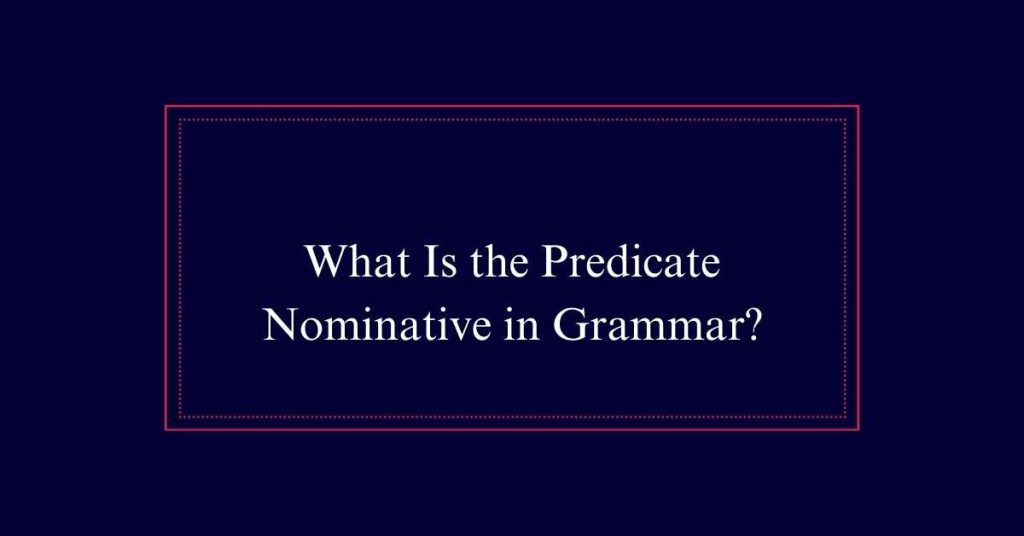
Linking Verbs Explained
Understanding predicate nominatives requires a grasp of linking verbs, which are essential in connecting subjects to their complements. Linking verbs do not show action. Instead, they describe the state of the subject. Common linking verbs include ‘be,’ ‘seem,’ and ‘become.’ These verbs help in identifying the predicate nominative, a noun or noun phrase that renames the subject.
Here is a table of some linking verbs and their uses:
| Verb | Example Sentence | Meaning |
|---|---|---|
| Be | She is a doctor. | Identity or role |
| Seem | He seems tired. | Appearance or impression |
| Become | They became friends. | Change or transformation |
| Remain | She remained calm. | Continuation of a state |
| Stay | They stayed silent. | Maintenance of a condition |
Subject Complements and Linking Verbs
Subject complements, which include predicate nominatives and predicate adjectives, follow linking verbs to provide more information about the subject. Linking verbs do not express action but instead connect the subject to additional information. Examples of linking verbs include ‘is,’ ‘seem,’ and ‘become.’
There are two main types of subject complements:
- Predicate Nominatives: These are nouns or noun phrases that rename or identify the subject. Example: ‘She is a doctor.’
- Predicate Adjectives: These are adjectives that describe the subject. Example: ‘The sky is blue.’
- Prepositional Phrases: Sometimes used as complements. Example: ‘He is in the room.’
- Simple and Compound Complements: Can be single words or connected by conjunctions. Example: ‘She is smart and kind.’
Predicate Nominative Usage
A predicate nominative follows a linking verb to rename or identify the subject of the sentence. It provides more information about the subject without indicating any action. For instance, in the sentence ‘She is a teacher,’ ‘teacher’ is the predicate nominative that renames ‘she.’ Predicate nominatives are vital in sentences with linking verbs like ‘is,’ ‘are,’ ‘was,’ and ‘were.’ They help clarify and enhance the meaning of the subject.
| Linking Verb | Subject | Predicate Nominative |
|---|---|---|
| is | He | a doctor |
| are | They | students |
| was | The cake | a disaster |
Simple Vs. Compound Predicate Nominatives
In grammar, predicate nominatives can be either simple or compound, depending on the structure of the sentence. A simple predicate nominative consists of a single noun or noun phrase that follows a linking verb. For example, in the sentence ‘Veda is an athlete,’ ‘athlete’ is a simple predicate nominative.
A compound predicate nominative, on the other hand, involves more than one noun or noun phrase, often connected by conjunctions like ‘and’ or ‘or.’ For example, in the sentence ‘Veda is an athlete and a scholar,’ ‘athlete and a scholar’ form a compound predicate nominative.
Key distinctions include:
- Simple: One noun.
- Compound: Multiple nouns.
- Linking verbs: Essential for both.
- Conjunctions: Used in compound forms.
Predicate Nominative Vs. Predicate Adjective
While simple and compound predicate nominatives help identify subjects, it’s equally important to distinguish these from predicate adjectives. Both serve as subject complements and follow linking verbs. However, a predicate nominative uses noun phrases to rename or define the subject.
For example, in ‘Sara is a teacher,’ ‘teacher’ is the predicate nominative.
In contrast, a predicate adjective uses adjective phrases to describe the subject. For instance, in ‘Sara is intelligent,’ ‘intelligent’ is the predicate adjective.
The key difference lies in the grammatical structure: predicate nominatives are nouns or noun phrases, whereas predicate adjectives are adjectives. Understanding this distinction enhances clarity in writing and helps in accurately conveying information about the subject.
Common Linking Verbs
Linking verbs are crucial in connecting the subject to its complement, which can include predicate nominatives. These verbs do not express action but rather link the subject to a state or condition.
Common linking verbs include:
- Be – This is the most common linking verb and can take many forms (am, is, are, was, were, etc.).
- Become – Indicates a change in state or condition.
- Seem – Suggests an appearance or impression.
- Remain – Conveys continuity in a state or condition.
These verbs are essential in sentences where the subject is described or identified by a noun or noun phrase, which is the predicate nominative. Understanding these linking verbs helps in constructing clear and grammatically correct sentences.
Practical Writing Tips
How can you effectively use predicate nominatives in your writing for greater clarity and impact?
First, identify the linking verbs in your sentences. Common linking verbs include ‘is,’ ‘are,’ ‘become,’ and ‘seem.’
Next, make sure the noun or noun phrase following the linking verb clearly defines or renames the subject. For instance, in ‘She is a doctor,’ ‘doctor’ is the predicate nominative.
This structure provides clarity by directly stating what the subject is. Use predicate nominatives to avoid ambiguity and make your writing more precise.
Remember, predicate nominatives offer a straightforward way to provide essential information about the subject, making your sentences strong and clear.
Frequently Asked Questions
Can a Predicate Nominative Be a Proper Noun?
Yes, a predicate nominative can be a proper noun. It follows a linking verb and renames the subject with a specific name. Example: “The winner is John.” Here, “John” is the predicate nominative.
Do Predicate Nominatives Always Follow the Subject Directly?
Predicate nominatives do not always follow the subject directly. They follow linking verbs, which connect the subject to the predicate nominative. This structure guarantees the subject is described or renamed by a noun or noun phrase.
Can a Predicate Nominative Include an Infinitive Phrase?
Yes, a predicate nominative can include an infinitive phrase. For example, in the sentence “Her goal is to become a doctor,” the infinitive phrase “to become a doctor” functions as the predicate nominative.

